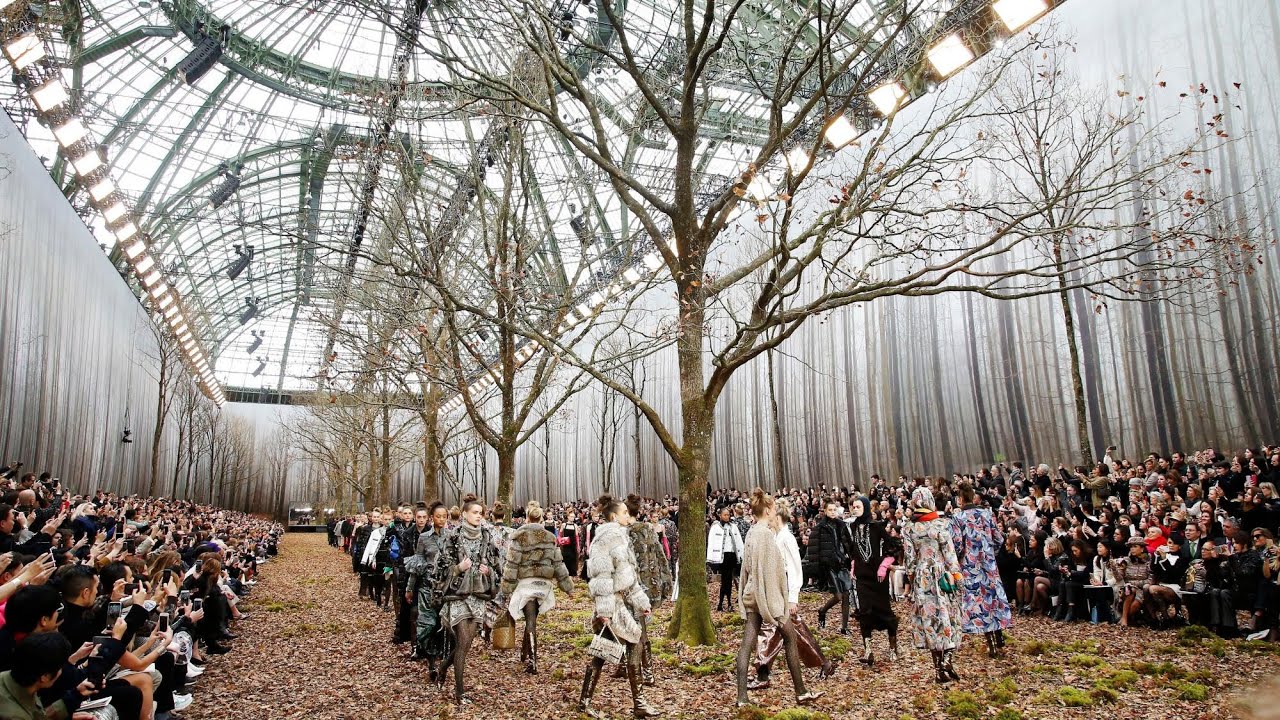Nature is in vogue right now. Perhaps it’s the threat of its loss that's ironically exulting it as a commodity that we can consume in a bid to save it? (I feel like Bill and Ted might have to help us with that paradox.)
Recently I've become aware of the theme of nature being explored at events, shows and theatre experiences. It's on the tip of everyone's tongues. It's all over Instagram. It's always received with gushing positivity (thankfully). Noticeably, nature is also literally all over Vogue right now, and I wondered why.
You might be wondering, why am I talking about fashion houses and not brand campaigns? To misquote Miranda Priestly from the Devil Wears Prada, 'what we decide looks good determines what you wear and do'. A lot of the aesthetic choices made in the global fashion houses trickle down to the world of consumer marketing.
Since 2020 more and more fashion houses have been showcasing runways in fields of flowers and woodlands. Outside. Away from walls, ceilings, and electric lighting. Obviously the covid situation banished the bustling front row. The paparazzi. The guests lists. But a few years ago, nature themed events got off to a really rocky start.
Back in 2018 Chanel cut down a lot of century old trees. They then artfully decorated the Grand Palais with these dead trees, winning themselves the title of 'heresy'. Before that in 2013 Sean Parker and Alexandra Lenas tied the knot in a Tolkien themed wedding under 3000 year old trees. They claimed the media exaggerated stories of building walls and trucks damaging ancient roots.
In 2018 fashion brand Tory Birch covered an indoor floor in a mud runway holding hundreds of cut pink flowers. They created the illusion of growing flowers. Interestingly, this show didn't get so much public criticism or get called heretics.
The two tree stories stick out in my mind because they showcase people wanting to include nature. These feel like moments when people were really trying to celebrate the atmosphere of nature. It's just that unfortunately, they weren't sympathetic to nature. The backlash was huge. So was the impact on nature.
These stories made me wonder, why are the ethical judgements being left to the press? Perhaps we creators need to write our own ethical codes before nature gets damaged. We need to ask ourselves how a nature based show can ethically support eco sustainability. Can nature and consumerism converge for mutual benefit, making Marx and Keynes and Attenborough all happy? (Or Charlene Mitchell, Ayn Rand and Jane Goodall?)
It feels like there's a tension about to be explored on a large scale by cultural institutions and brands as we include nature more. If we want to include and celebrate nature in our experiences, runways and outdoor theatre performances, how do we do so in a way that is also eco-sustainable? Kind to wild life? Gentle enough for the hedgehogs?

